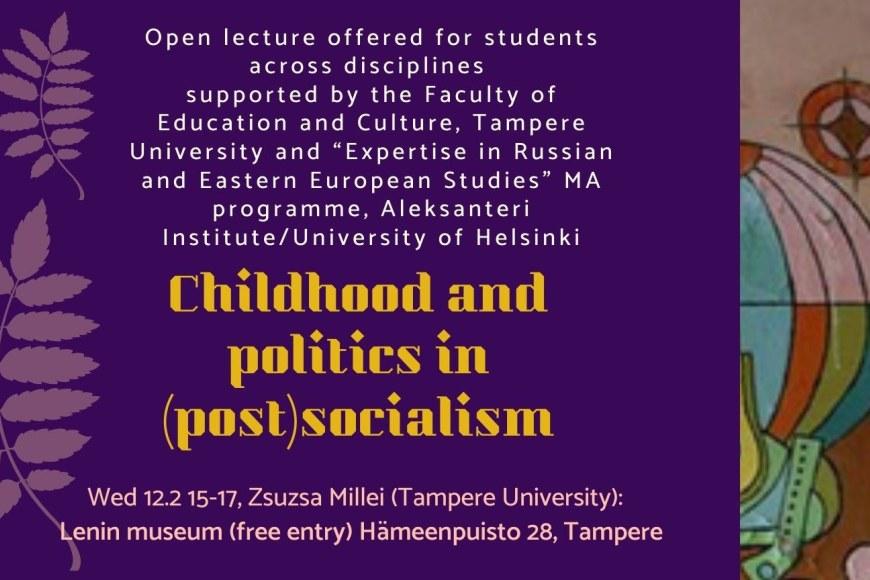
Socialism and childhood
Zsuzsa Millei (Tampere University)
Childhood was exceptionally important during state socialism, both as a construction (with its relation to the socialist ideal of childhood) and as the early period of a person’s life (as the child to be socialized into the ‘socialist human’). Socialism aimed to create a new, morally and psychologically superior human beings whose consciousness would be re-oriented away from materialism and individuality (capitalism). The focus on the development and socialization of children and the creation of an ideal childhood were therefore vital. Symbolically, children were the icons of the socialist revolution’s present and future, resources for bringing about a more equal and community-oriented society. Children in life were seen as important civic and political actors and as an impressionable segment of the population and hence as embodying the possibility of a new social order. This importance of childhood facilitated the development of child related sciences and professional knowledge in the socialist bloc countries. This level of interest associated with childhood is almost unparalleled in history. Exploring childhood and children’s everyday experiences offers significant insights into children’s political life today and helps debunk knowledge produced about socialist childhood during the Cold War era.
Attachments
Further information
Nelli Piattoeva (nelli.piattoeva@tuni.fi)
